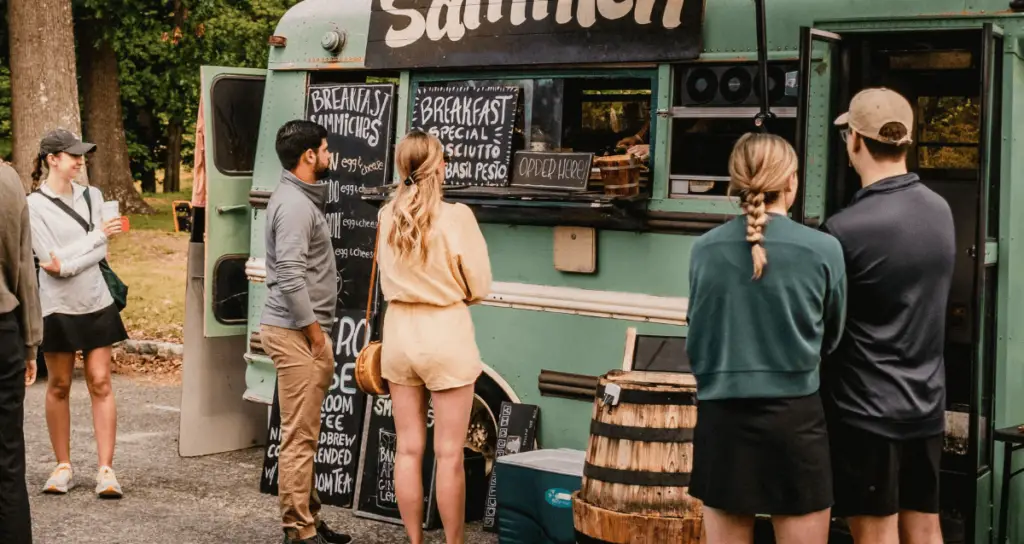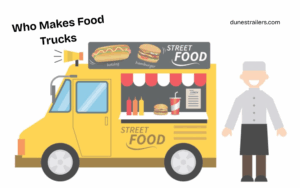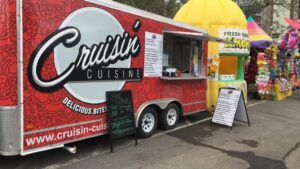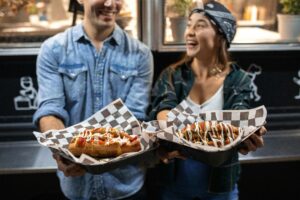If you haven’t been in the mountains, you’ve noticed that food trucks are more popular lately. Though street food isn’t new, food trucks now thrive in nearly every suburb and city. They offer a blend of fusion dishes and classic comfort meals.
In our town, we have many events focused on food trucks. Several bars and pubs have teamed up with food trucks, using them as their mobile kitchens.
However, what is the reason behind the popularity of food trucks? What lessons of value can schools and educators learn from this trend?
Educators can learn to create fun, flexible lessons by watching food trucks cater to customers. Food trucks show how to adjust to changes and keep people interested.
Adapting School Lessons from the Food Truck Trend
1. Adaptability in Action
Food trucks thrive by being adaptable and serving diverse customers in various locations. They quickly adjust menus, locations, and services to meet changing demands.
Food trucks adapt by moving to where the demand is. Education can adopt this model. It can create mobile learning hubs, pop-up classrooms, or online platforms. These would teach students in underserved or remote areas.
Adaptation in education, inspired by food trucks, is about flexibility. It’s about being responsive to learners’ evolving needs in a dynamic, personalized way.
2. Mobility:

Food trucks exemplify how mobility can enhance access to essential services. They bring food to various communities. This ensures access to quality meals, even in underserved areas.
The main advantage food trucks have over regular restaurants is that they can move around. This allows people to enjoy their meals in diverse, unique settings. Schools and educators could apply this concept to learning.
Where can we take learning beyond the traditional classroom? Many environments may be more authentic or conducive to learning.
Examples include field trips, community sites, and industry locations. Also, internships, externships, field studies, and work-based learning. Even simple shifts, like moving lessons outdoors, can enhance the experience. With technology, students can now access curriculum and programs from home, through videos, or at flexible times.
This allows students to create space, tests, or projects according to students’ needs.
3. Specialization
Like food vendors and different themes needed for every type of food truck, schools can’t master every subject, which is why focusing on a specialty is crucial. Charter schools are often appealing. They focus on specific areas. So, they become highly skilled in their niche.
Traditional schools try to teach everything. This makes it hard for them to stand out in any area. By focusing on what they do best, schools can offer top-notch education in specific fields.
4. Community Engagement
The food truck unique designs also plays a role in social and community engagement. Food trucks create social interaction by being in neighborhoods, festivals, and public spaces. Schools can learn from this to boost community engagement.

Schools can connect students, teachers, and the community through service projects, partnerships, or events. This boosts learning and encourages social responsibility in students.
5. Quick Response to feedback
Food trucks adjust rapidly based on customer feedback, making necessary tweaks to menus or pricing. Education can also be responsive. It can create feedback loops. These allow teachers to adjust their methods and curricula based on students’ performance, engagement, and feedback.
6. Customization and Personalization
Food trucks frequently focus on specific types of cuisine, meeting the specific preferences and tastes of customers, ultimately increasing their satisfaction.
Learning journeys can become more customized. They should reflect each student’s strengths, interests, and learning preferences.
We could use modular courses, project-centered learning, or custom curricula. They would address students’ varied needs.
7. Turn into Experience
- The Value of Experience
Above all, what we seek is an experience. The place, people, and time are crucial for our enjoyment. Food trucks offer simple, flexible experiences. They’re social, fun, and each one is different.
- Missing Social Interactions in Schools
Too frequently in schools, students lack unique social interactions. If teachers don’t aim for that goal consistently, education can easily become brief, insignificant, and disjointed
- . Impactful Learning Moments
Our most significant learning experiences are memorable. They engage us emotionally or intellectually. These impactful moments shape our understanding.
- Bridging Food Trucks and Classroom
The next time you visit a food truck or you are teaching a class, then think about how food trucks and class are the same. Let’s determine if we can make our school “menus” resemble the food truck trend in appearance and vibe.
Conclusion:
The trend of food trucks is more than just new food ideas. It shows flexibility, creativity, and community involvement.
Schools can learn important lessons from this. They should be adaptable, use different skills, and be open to feedback.
By applying these ideas, schools can improve and meet the needs of today’s students, making learning more accessible and active.







